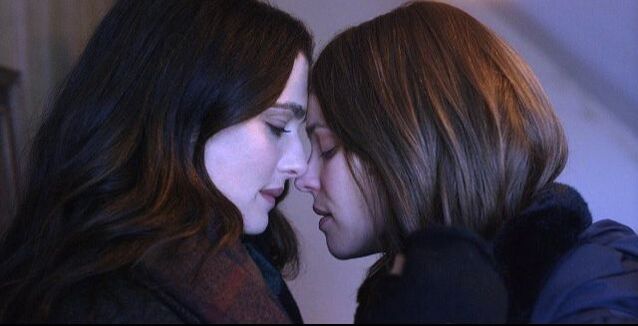DISOBEDIENCE
***
Director: Sebastián Lelio
Screenwriters: Sebastián Lelio and Rebecca Lenkiewicz, based on the eponymous novel by Naomi Alderman
Principal cast:
Rachel Weisz
Rachel McAdams
Alessandro Nivola
Anton Lesser
Nicholas Woodeson
Country: Ireland/UK/USA
Classification: MA15+
Runtime: 114 mins.
Australian release date: 14 June 2018
Previewed at: Event Cinemas, George Street, Sydney, on 30 May 2018.
Disobedience is the Chilean director Sebastián Lelio’s first English language feature. His previous films, Gloria and A Fantastic Woman (which won the Academy Award for Best Foreign Language Film this year) were enthusiastically received by Australian audiences, so understandably there is much anticipation for the release of this latest film. And, once more, the subject matter concentrates around the plight of women.
The opening scene shows an attractive English woman, Ronit Krushka (Rachel Weisz), conducting a photo shoot in her studio in New York. In the midst of the session she receives a phone call to say that her father, Rav Krushka (Anton Lesser), a prominent rabbi in the North London Jewish Orthodox community, has dropped dead while delivering a sermon at his synagogue. The sermon was about freedom and choice, which was considered quite radical in the enclosed, almost hermetic community of Orthodox Judaism. Ronit, who’d fled to the USA some years ago when it was revealed that she was having a relationship with another woman, decides to return and attend her father’s funeral. She also has plans to sell the house he owned, with the intention of ensuring her future financial stability.
Ronit arrives as the wake is in progress at Dovid Kuperman’s (Alessandro Nivola) home and gets a frosty reception from the congregation. Dovid was previously a close friend who was taken under the wing of her father and trained to be his successor at the synagogue. Unbeknownst to Ronit, in her absence he has taken a bride, Esti (Rachel McAdams), who was her aforementioned lover, no less. Oy vey! It seems that Esti felt that marriage would cure her predilection for women and has resigned herself to conform to the mores of the restricted society to which she belongs. Needless to say, Ronit’s arrival puts the cat amongst the pigeons. The ensuing drama is a complex observation of the constraints and expectations imposed by the cloistered community.
Disobedience doesn’t set out to judge or discriminate; it is an attempt to show how difficult it is to negotiate the borders between sexuality and faith in a structured society. Danny Cohen’s dark, brooding cinematography sets the tone by using a palette devoid of bright colours, focusing instead on sombre grey and blacks. The performances of the leads are all admirable. Weisz’s body language ably expresses her frustration and bewilderment about her predicament; she looks like she’s about to scream at times, while McAdams’s face successfully portrays her resignation to the situation, until deeper emotions are brought to the surface. Nivola’s Dovid is finely controlled - until he isn’t. It’s a terrific portrayal of a man grappling with his faith and his inability to come to grips with his quotidian life and you feel great sympathy for this person who’s caught between two worlds.
Director Lelio, who co-wrote the script with playwright Rebecca Lenkiewicz, says, “We’re going through a war in which only certain relationships are considered legitimate and who draws the line where and with which authority. This is a story about characters that are willing to change and evolve, but to do so they have to go through very rigid structures and that confrontation resonates with what we’re going through nowadays as a human society all over the world.” In that sense Disobedience is a universal story to which people everywhere will be able to relate. The blast of The Cure’s ‘Love Song’ over the end credits is a welcome relief from the claustrophobic dilemma and it brings forth some hope as Robert Smith wails, “Whenever I’m alone with you, you make me feel like I am whole again…”
